MercoPress. South Atlantic News Agency
Economy
-
Wednesday, June 18th 2014 - 07:59 UTC
Argentine industrial and financial community call for 'dialogue' with holdouts

Argentina's industrial union and bank associations expressed their deep concern regarding Monday's US Supreme Court refusal to take the long standing case with the holdout hedge funds, and all called for a solution appealing to dialogue.
-
Wednesday, June 18th 2014 - 07:52 UTC
“Judge Griesa's message is reasonable and conciliatory” argues Lavagna
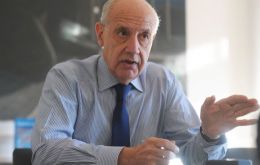
Argentina's former Economy Minister and architect of the 2005 rescheduling of defaulted debt, Roberto Lavagna called for “calm” and “seriousness” to rethink the country's legal strategy following the setback suffered on Monday when the US Supreme Court decided not to hear its appeal against holdout hedge funds.
-
Wednesday, June 18th 2014 - 07:45 UTC
IMF concerned about 'wider systemic implications' of the US Supreme Court decision on Argentina
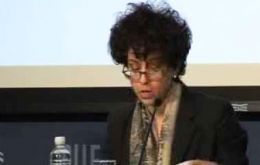
The International Monetary Fund is “concerned about wider systemic implications” the ruling by the US Supreme Court could prompt following its decision not to consider Argentina’s appeal aimed at staving off a default.
-
Wednesday, June 18th 2014 - 07:37 UTC
Argentina plans to reopen debt swap program and will request to meet Griesa

Economy Minister Axel Kicillof has announced that the government plans to reopen the debt swap program in the hope of renegotiating bonds held by hedge funds, after the US Supreme Court declined to take Argentina's case against the so-called 'vulture funds'.
-
Tuesday, June 17th 2014 - 23:25 UTC
UK minister arrives in Brazil to cheer for England and promote business and tourism

UK Minister for Sport, Tourism and Equalities Helen Grant arrives in Sao Paulo on Wednesday to cheer for the English team in the World Cup, and to share experience and promote the values and policies that transform social reality.
-
Tuesday, June 17th 2014 - 07:15 UTC
Argentina will pay 92% of restructured bonds, hopefully 100% of debt, but will not accept extortions

President Cristina Fernandez pledged on national television late Monday that Argentina will abide and honor its debts, the 92% of those who trusted in the country and hopefully the 100% of creditors, but will not accept 'extortions'.
-
Tuesday, June 17th 2014 - 07:06 UTC
Argentina questions UPM-Botnia's political influence on Uruguayan government
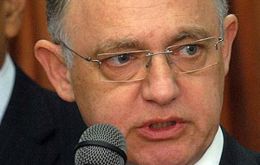
Argentine foreign minister Hector Timerman said that the pulp mill dispute with Uruguay is 'political' and wondered how great is Finland's' Botnia-UPM influence in the country, but at the same time underlined that all chances of dialogue have been 'exhausted'.
-
Tuesday, June 17th 2014 - 06:27 UTC
IMF cuts US growth forecast and recommends 'continued policy support'
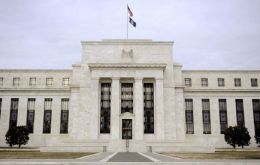
The International Monetary Fund cut its growth forecast for the United States and said the economy would not reach full employment until the end of 2017, allowing the Federal Reserve to take its time before raising interest rates.
-
Monday, June 16th 2014 - 06:58 UTC
Pacific Alliance wants to 'expand influence' through cooperation with other groups
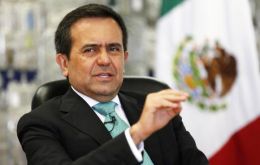
The Pacific Alliance will try to 'expand its influence' through agreements with other blocks to improve cooperation in different fields while targeting a “wider integration” in the region, said Mexico's Economy minister Ildefonso Guajardo. The Alliance is holding its summit this week in Punta Mita, Mexico when the chair of the group will pass from Colombia on to Mexico.
-
Monday, June 16th 2014 - 06:32 UTC
Irish farmers fear 'decimation' from a Mercosur/EU trade agreement

The determination of European Commission President Manuel Barroso to conclude a deal with Mercosur before he leaves office posed a severe threat to Ireland's interest, Independent MEP Marian Harkin has warned in a piece reported by Irish Independent.
